Say goodbye to clutter and confusion with these 13 expert-backed tricks that will help you keep what truly matters.

Struggling to declutter but afraid you’ll regret tossing something important? You’re not alone. Seniors everywhere face the same dilemma—what stays and what goes? Over the years, we collect memories, keepsakes, and, let’s be honest, a whole lot of stuff we don’t actually need.
The problem? Too much clutter makes life harder, not easier. The good news is, you don’t have to get rid of everything. With a few smart strategies, you can clear the chaos and keep what truly matters.
1. Stop keeping things just because they were expensive.
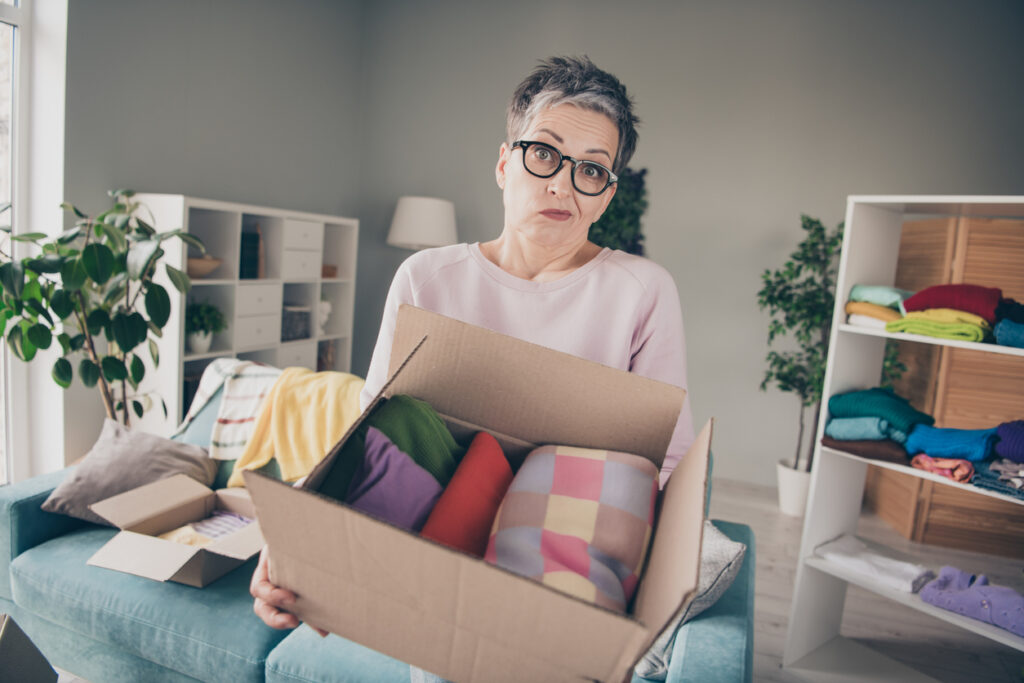
We’ve all spent money on things that ended up collecting dust. But holding onto them doesn’t bring the money back. In fact, the guilt of seeing those unused items can weigh you down. Instead of letting expensive regrets take up space, consider selling, donating, or repurposing them. Someone else might get real use out of them, and you’ll gain a sense of relief. The real value isn’t in the item—it’s in the freedom of letting it go.
2. Use the “one-year rule” for almost everything.
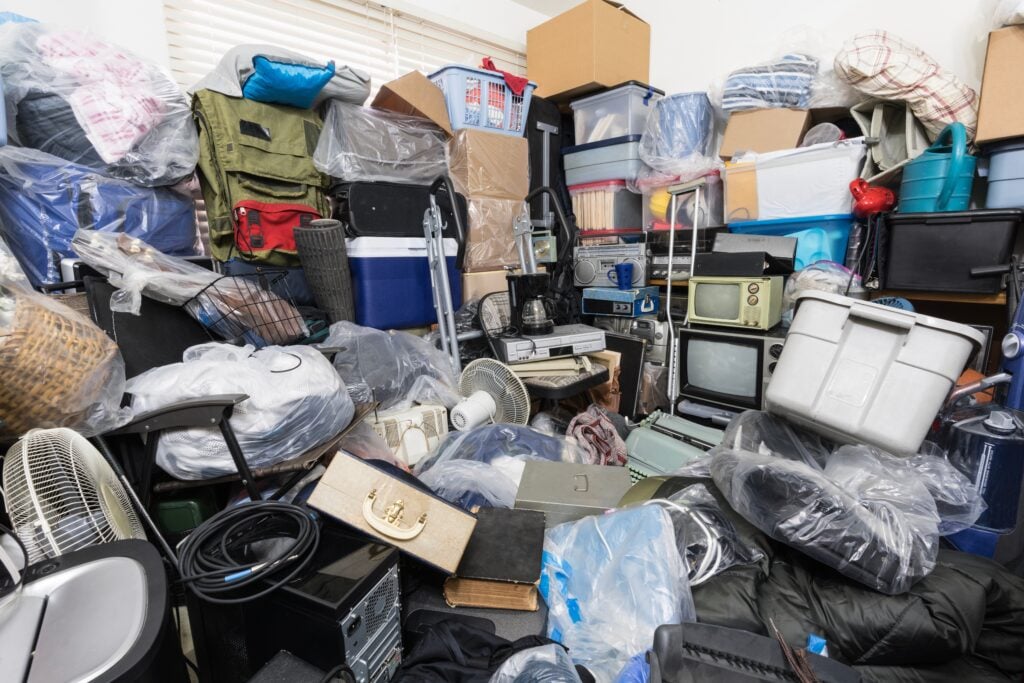
If you haven’t used it in the past year, chances are, you don’t need it. Sure, some sentimental or seasonal items deserve exceptions, but most clutter is just that—clutter. That fancy kitchen gadget? Those unworn shoes? If they’ve been sitting untouched for 12 months, it’s time to let them go. The longer things sit unused, the more they become dead weight. Free up space for the things you actually enjoy and use.
3. Get rid of duplicates—one is enough.
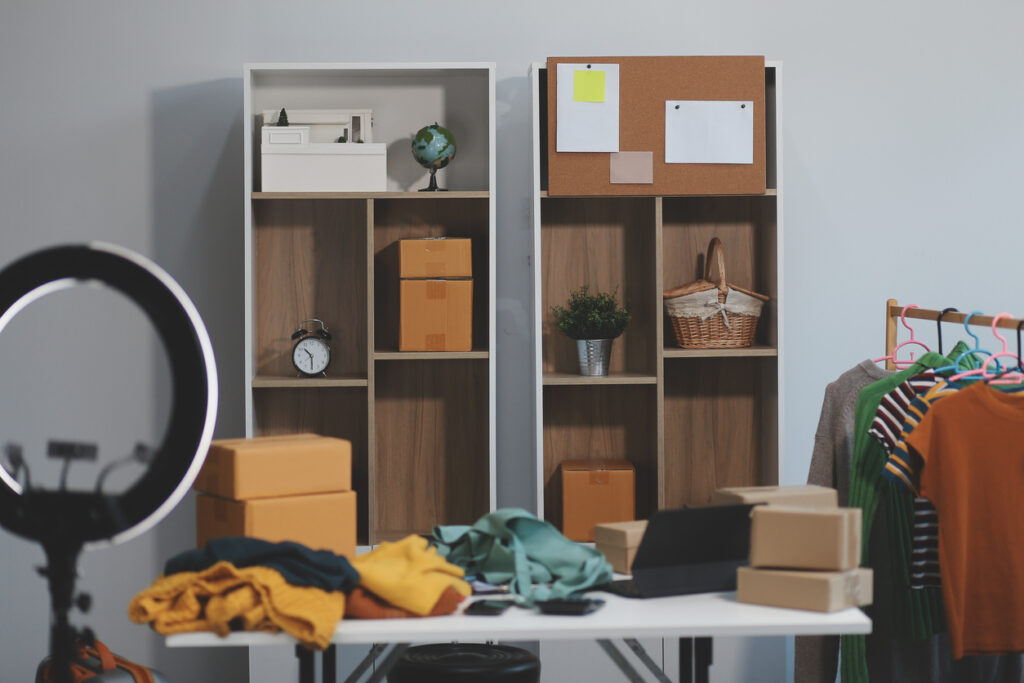
How many coffee mugs, scissors, or extra blankets does one person need? Over the years, it’s easy to accumulate duplicates without realizing it. But keeping too many of the same thing only clutters your space. Pick your favorites and donate the rest. If you’re worried about “just in case,” remind yourself that life isn’t about stockpiling—it’s about simplifying. Having one of something (or maybe two) is plenty, and it’ll make your home feel instantly lighter.
4. Stop saving things for “someday.”

We all have that stash—craft supplies for a hobby we never started, fancy dishes waiting for a special occasion, or clothes we hope to fit into again. The truth is, “someday” rarely comes. In the meantime, these things just take up space and create stress. If you haven’t used it in years, you probably never will. Give yourself permission to pass it on so someone else can enjoy it, and reclaim your space for the life you’re living now.
5. Ask yourself if you’d buy it again today.

This trick works like magic. If you saw this item in a store right now, would you still buy it? If the answer is no, why let it take up space? It’s easy to keep things just because we already own them, but that doesn’t mean they belong in our future. Think of your home as a carefully curated space—only the things that add value, joy, or usefulness deserve a spot in it.
6. Be ruthless with paperwork—most of it is useless.

Bills, receipts, warranties, manuals, old tax returns—paper clutter piles up fast. But let’s be honest: Most of it isn’t needed. Shred or recycle anything that’s outdated, irrelevant, or easily available online. Keep only the essentials, like important legal documents, and organize them in one spot. A drawer stuffed with ancient paperwork doesn’t serve you—it just adds stress. Less paper means less mess, and that means more peace of mind.
7. Give sentimental items a limit, not a free pass.
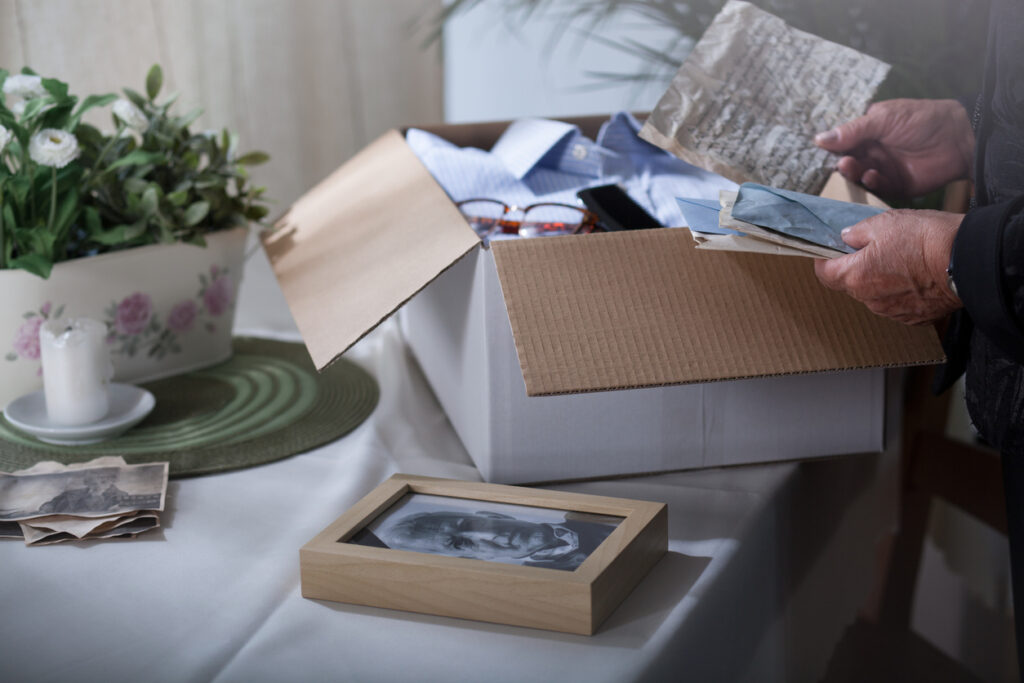
Keepsakes are tricky. While some things are worth holding onto, it’s easy to let nostalgia turn into clutter. Instead of keeping every letter, knickknack, or souvenir, set a limit. Choose a special box or small space for the most meaningful items, and let the rest go. Taking photos of sentimental items before donating them can help ease the guilt. Memories don’t live in objects—they live in you. Keeping a few cherished pieces is enough.
8. Toss anything that makes you feel bad.
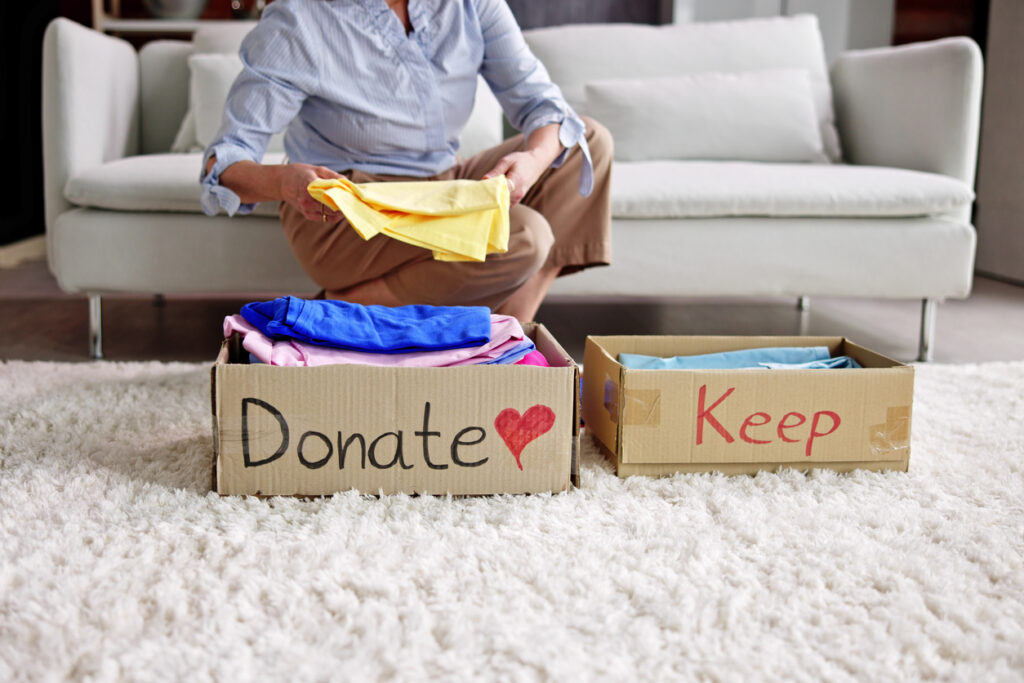
Some things carry emotional baggage—gifts from people you no longer talk to, clothes that don’t fit, or projects you never finished. Every time you see them, they trigger guilt, frustration, or sadness. Why keep that energy in your home? If something makes you feel bad, it’s not serving you. Give yourself permission to release anything that doesn’t bring positivity into your life. Decluttering isn’t just about space—it’s about emotional well-being too.
9. Set a “use it or lose it” deadline.

Some things feel impossible to part with—so give yourself a test. Set a deadline (like three months), and if you haven’t used an item by then, it’s time for it to go. Whether it’s kitchen gadgets, books, or clothing, putting a time limit on clutter forces you to be honest about what’s truly useful. Chances are, when the deadline comes, you won’t even miss most of it. And that’s a clear sign it’s time to let go.
10. Don’t save things just because they were gifts.
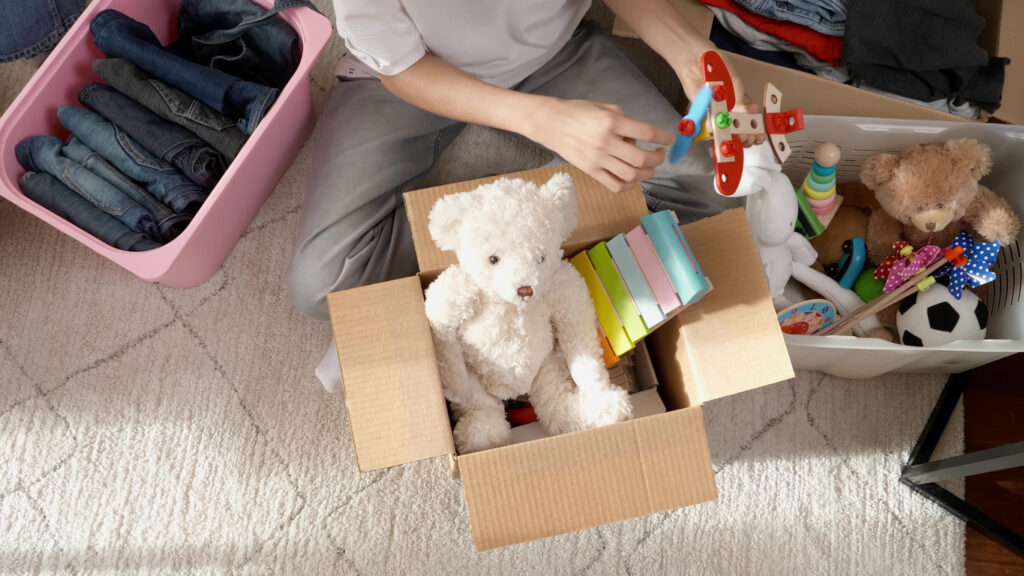
Guilt is a terrible reason to keep something. If you’re only holding onto a gift because you don’t want to feel bad about letting it go, remember this: The person who gave it to you wouldn’t want it to be a burden. Gifts are meant to bring joy, not obligation. If you don’t love it or use it, pass it along. Someone else might treasure it, and you’ll be free from unnecessary clutter.
11. Recognize that furniture isn’t sacred.
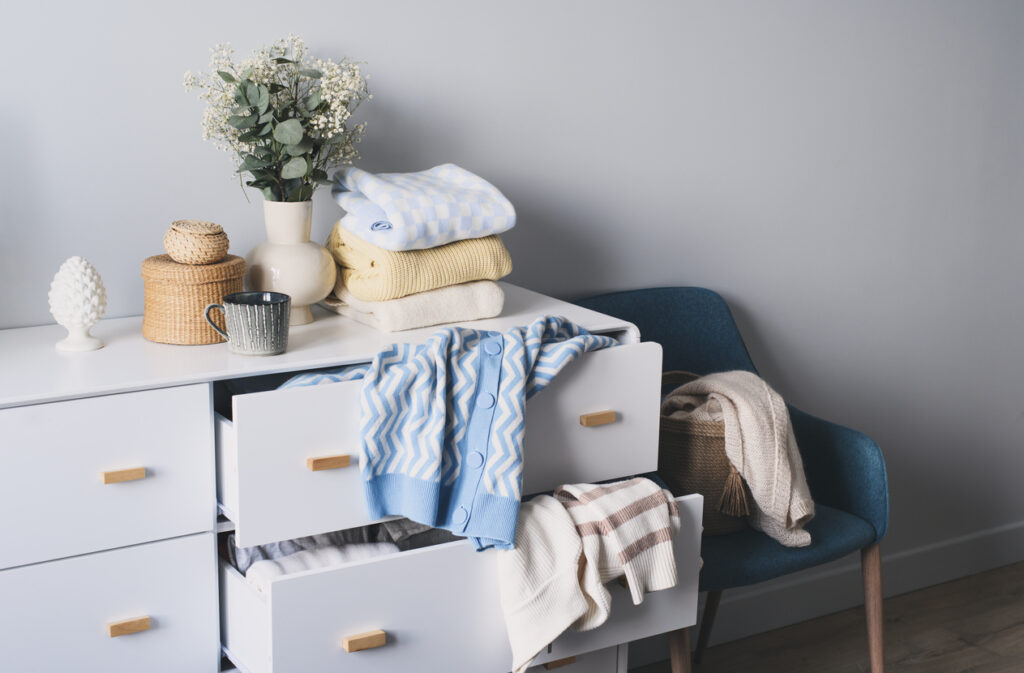
Big, bulky furniture can be the hardest to part with, especially if it’s been in the family for years. But if it no longer fits your space or lifestyle, it’s okay to let it go. An oversized china cabinet or heavy antique dresser shouldn’t dictate how you live. If you’re hanging onto a piece just because of its history, consider selling or donating it. Your home should work for you, not the other way around.
12. Accept that it’s okay to throw things away.
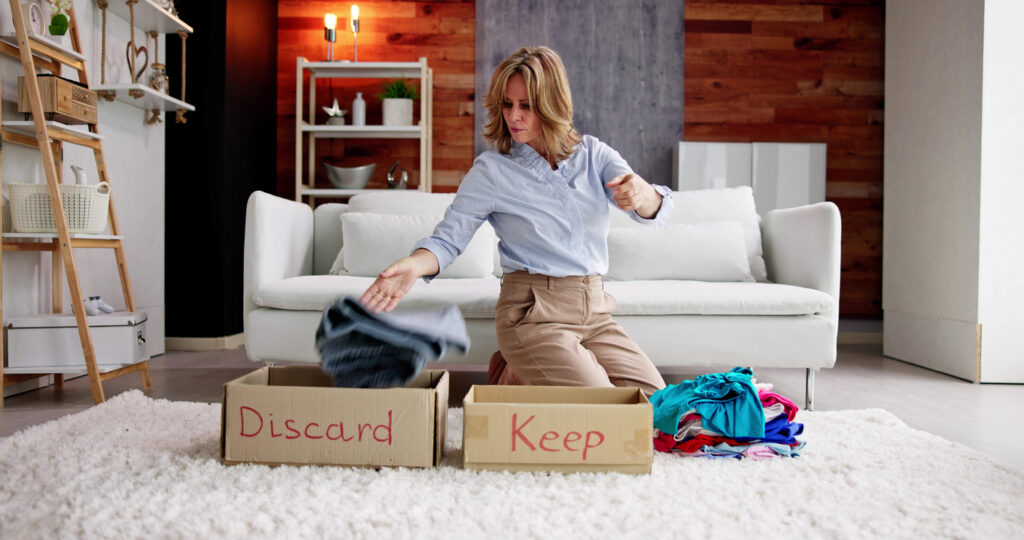
Some things aren’t worth donating, selling, or keeping. They’re just junk. It’s okay to throw things away, even if it feels wasteful. Broken appliances, outdated electronics, stretched-out clothing—if it’s not useful, it’s not worth keeping. Sometimes, the best decision is to simply toss it. Clinging to useless items only adds unnecessary clutter. The goal is to create a home filled with things that serve you, not weigh you down.
